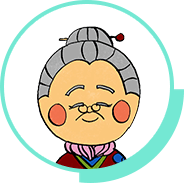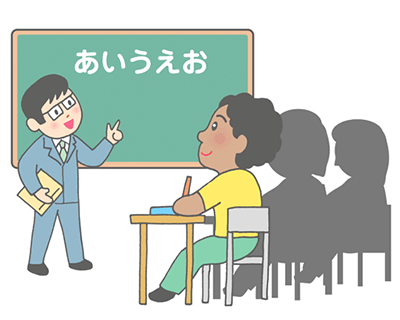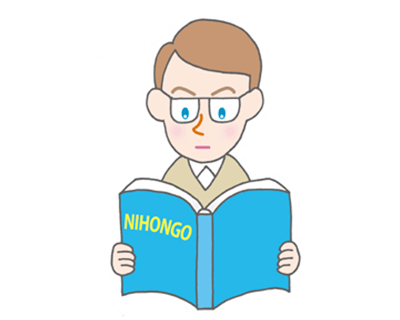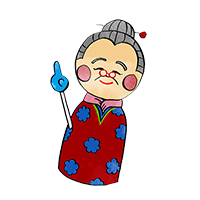It's Tam's first day of classes at the university. The robot landlady Haru-san notices she's nervous.









To express something you did in the past, change the end of the verb's MASU-form from "masu" to "mashita." "De" in "rajio de" indicates the means. The subject "watashi wa" or "I" and the object "Nihongo o" or "Japanese" have been omitted because they're clear from the context. Particle "de": In "Rajio de benkyoo-shimashita" or "I studied by listening to the radio", "de" indicates the means. The "de" in "Daigaku de benkyoo-shimashita" or "I studied at the university" shows the location. As these examples indicate, one particle can have different usages.





This humble expression can be used when someone praises you. "Iie" means "no" and "mada mada desu" means "not enough."

If someone compliments you, saying "Your Japanese is good," how would you answer?
Most Japanese people would answer in a humble way and say it's not good enough as in 2) "Iie, mada mada desu." Japanese has lots of other humble expressions. For example, even when someone has prepared a table full of delicacies for a guest, a common way to present the food would be "We have nothing but this."